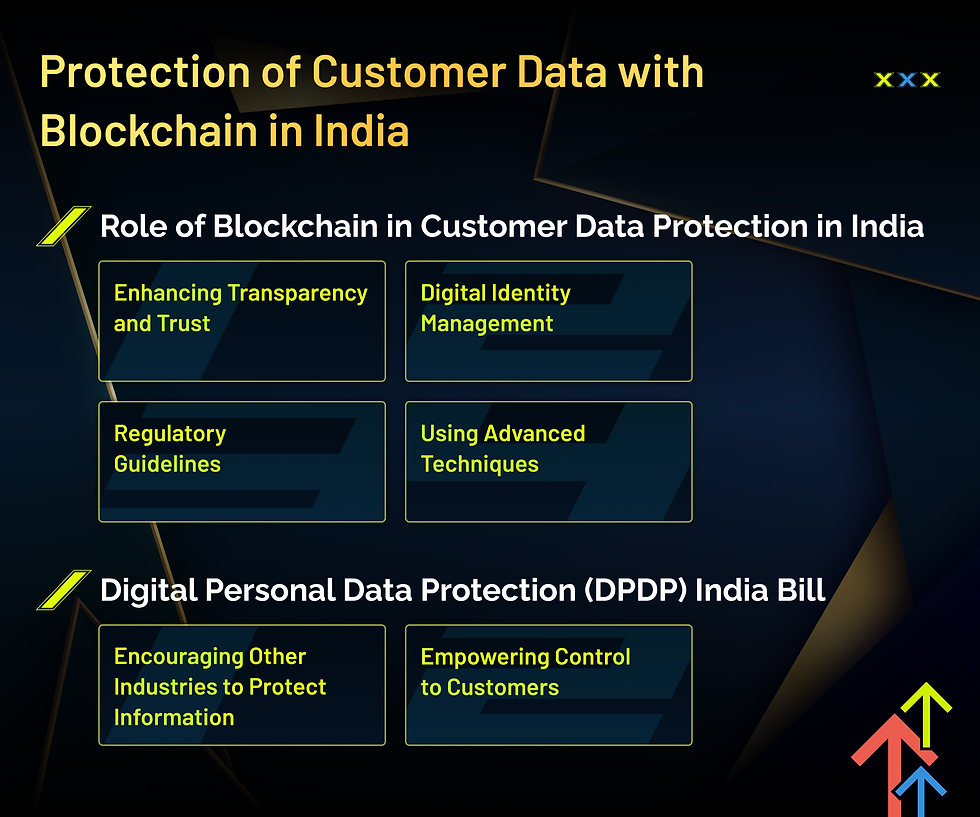In a context where customers prioritise the confidentiality and security of their data, India has undertaken significant measures to ensure the protection of customer information, addressing this concern over time. Safeguarding customer data is a foremost focus for both private and public entities in response to instances such as data breaches and violations of privacy regulations.
With the increasing prevalence of digital transactions and the widespread use of online platforms for various services, from making payments to online shopping, it is crucial to strengthen the security of customer data and emphasise the adoption of disruptive technologies like the blockchain.

According to a recent report by Forbes India, the Clop ransomware group released sensitive data of Kotak Mahindra Life Insurance on the dark web. It was said that the client’s information, unique registration numbers (URN), SAP login credentials, PhonePe records of customers, and other information of financial partners such as capital Small Finance Banks, Hero FinCorp, and other customers.
In recent years, India has faced multiple data breaches, exposing millions of customer records. Though data privacy regulations exist, enforcement remains inconsistent. This has corrupted consumer trust and presented challenges for businesses handling customer data. Companies struggle to detect and prevent breaches.
“India was the 10th most breached country globally in Q3 2023, with 369,000 leaked accounts, according to a cybersecurity report by Surfshark. It remained one of the most breached countries in the world for the third quarter in a row in 2023, despite a decrease in the number of leaked accounts”.
To overcome this huge crisis, blockchain technology holds the potential solution with its decentralized, transparent, and secure structure to ensure the integrity and security of customer data across various industries.
Role of Blockchain in Customer Data Protection in India
The government and regulatory authorities can leverage blockchain to create a more robust framework for data protection and privacy regulations. By incorporating blockchain into data protection laws, India can establish a more secure and transparent customer data ecosystem.
Enhancing Transparency and Trust:
The Indian government and several organizations are recognizing the transformative impact of blockchain technology on data protection. One of the most significant initiatives in this direction is adopting blockchain in the financial sector. The Reserve Bank of India (RBI) has been exploring the use of blockchain to secure financial transactions and customer data, thereby enhancing trust and transparency in the banking system.
One example is the launch of E-rupee and CBDC payment facilities through blockchain to protect the customer’s private data from unauthorized access and provide seamless financial facilities.
Digital Identity Management:
The Indian government has been exploring blockchain-based solutions for digital identity management. By leveraging blockchain technology, the government aims to enhance the security and integrity of citizen data, effectively mitigating the risks associated with identity theft and hacking.
Regulatory Guidelines:
The government has been actively taking measures to establish regulations governing the use of blockchain in data security. To maintain a secure and transparent approach to customer data management, the government is working on setting standards and ensuring compliance with blockchain-based systems.
Example: KYC compliance and adopting the GDPR to protect the customer’s data and security.
Using Advanced Techniques:
Blockchain can enhance data security through its cryptographic algorithms. Data stored on a blockchain is secured using advanced cryptographic techniques, making it extremely difficult for unauthorized parties to tamper with or access the data. This is particularly required in a country like India, where data breaches and cyber-attacks are a common concern.
Digital Personal Data Protection (DPDP) India Bill
The DPDP India Bill 2023 is a proposed digital personal data processing regulation that recognizes individual rights and the need for relevant data processing. It aims to strengthen privacy protection in the digital realm by establishing guidelines and standards for personal data processing.
Encouraging Other Industries to Protect Information
In India, governments encourage public and private enterprises to embrace blockchain to protect customer data security. Industries like healthcare, insurance, etc, are adopting blockchain-based solutions to safeguard sensitive customer information from fraudulent activities, by using blockchain potential such as immutable and traceability to enhance the overall trust and reliability.
Empowering Control to Customers
Utilizing blockchain technology in identity verification allows customers to own and govern their data. With blockchain-based systems, customers can maintain control over their data and strategically grant access to third parties as needed, ensuring greater privacy and liberation over of their information.
Conclusion
India's adoption of blockchain technology for customer data protection aims to enhance data security and foster digital trust. By leveraging blockchain's inherent security features, protecting customer data in the digital age ensures data security and trust from the customer. India lays the foundation for a more secure and resilient data ecosystem, eventually empowering individuals and organisations to transact and interact more confidently in the digital world.

Comments